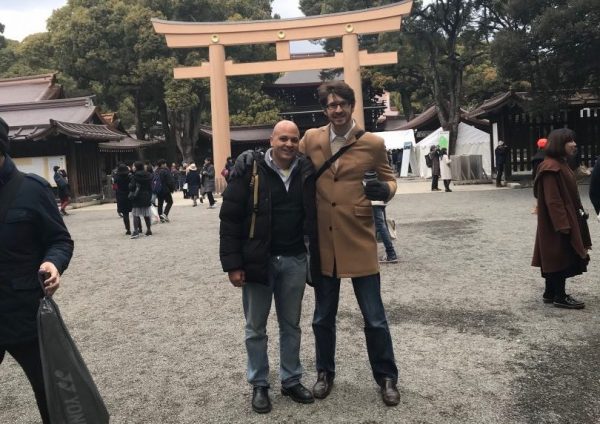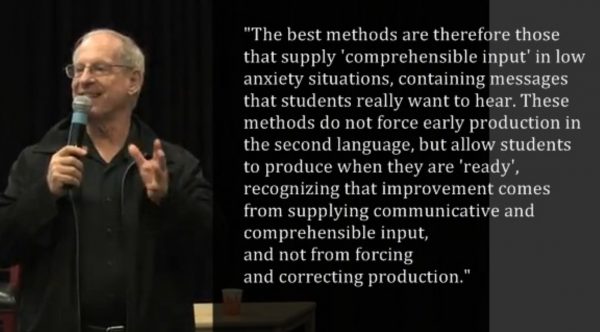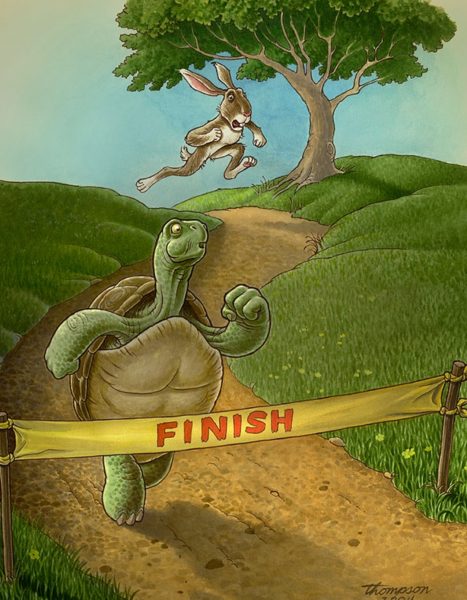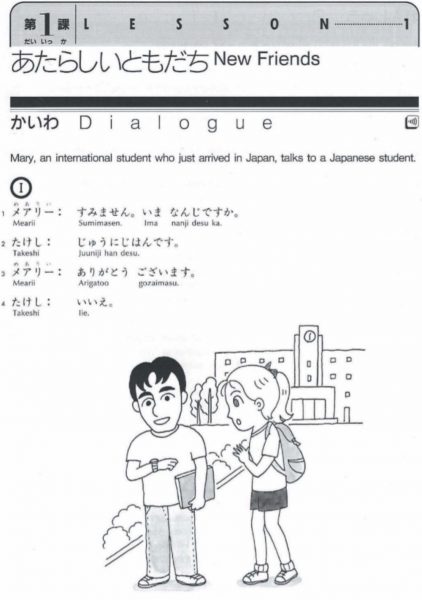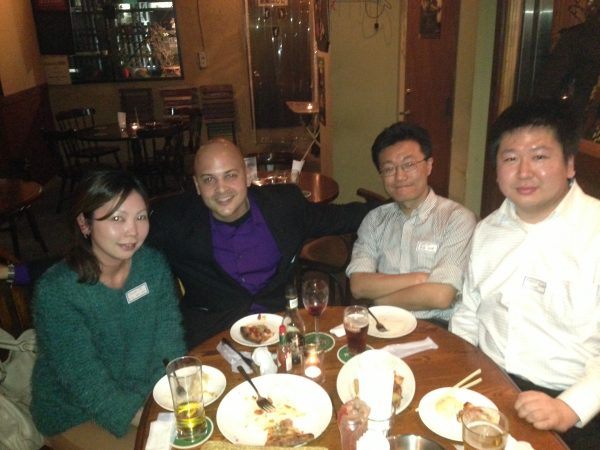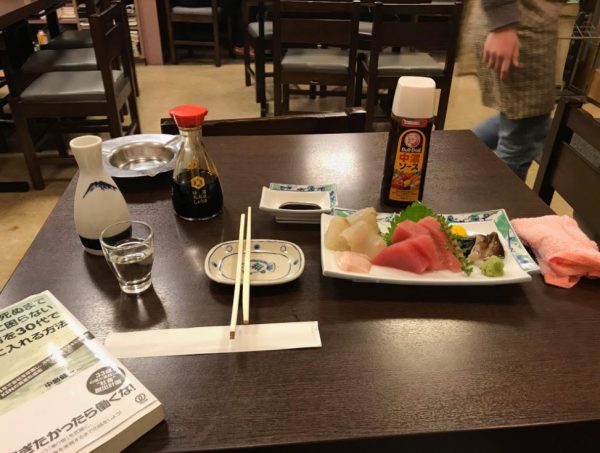Mastering Japanese isn’t the goal, understanding what other people want to say and being able to express yourself via the mode of Japanese is!
Who am I to say what these steps should be? I did become a Japanese interpreter and translator. I have used Japanese to negotiate real estate deals and legal contracts. I have participated in international projects with Japanese where jobs needed to get done and we only used Japanese.
1. Do not overestimate or underestimate the commitment required to acquire Japanese
Japanese is just a language. A language is not an accumulation of knowledge. It is more like a skill or muscle memory. Just like a muscle, if you don’t get the right amount of input (food), no matter how much you train, it will be flabby. Just like a muscle, you get what you train for. If you only memorize how to work out by learning about working out (Japanese) and do not practice using Nihongo in real life situations, do not expect that it will be ready for gameday (real life using the language).
Read more about Stephen Krashen’s Input Hypothesis here.
2. Know the highest value Japanese and learn that first
Before you begin your journey to learn Japanese, the first thing you should notice is that your task isn’t actually that monumental. You just need to learn how to talk about regular everyday stuff and supplement with some things that are particular to you. Forget beginner, intermediate, advanced, etc. Communication is your first goal. The real test comes in real life situations.
Even if you desire to one day master Japanese and even get to ‘native level,’ first you just need to train until you become an independent person via the mode of Japanese. As in, you’re not trying to learn Japanese so much as just how to express yourself well enough to be understood and how to understand others in the most commonplace types of situations. For you, commonplace won’t be exactly what it would be for a native local in Japan. At least not at this point.
You won’t be negotiating court settlements or bank loan terms in Japanese, you just need to be able to perform simple tasks like buying things, getting what you want and not what you don’t in your food, inquiring about others, introducing yourself to others, etc.
There may be a few things you need to learn to express that aren’t in your textbook because they are just important to you, the area you plan to travel to in Japan, the industry you are working in or your fiancé’s family for instance. Other things that are just important to you might include hobbies you want to pursue in Japan like 弓道 Kyudou (Japanese way of archery) or your profession. These are just like add-ons to the basic foundation you will build. Since you will be interested in these things anyway, your curiosity should lead you right to them.
3. Over-training won’t help you, consistency is the only way up the hill
Just like a muscle, you cannot just lift until you drop. There comes a point in studying the language, especially studying ABOUT Japanese, that not a single kanji more, not a single radical more and not a single grammatical pattern more will enter into your brain.
Pick a time in the day and always train your Japanese muscle at that time. For most people, that time in the early morning. It is the only time most of us can control where other people won’t be calling us, texting, or asking us to do something else. This is also one of the best times to commit mentally challenging ideas to memory. Whether that be kanji strokes or grammatical patterns. It is a great time to solve puzzles in your brain like working on worksheets or the like.
If you can find another time that works for you, great. For most people, they are quite mentally sharp in the earlier part of the day and then social demands progressively mount as the day goes on. In the middle of the day, we want down time. By the end of the day, we begin to wind down. I have found that there are more profitable activities for each of the subsequent phases of the day that we will discuss below.
Charlie’s Experience
I spent the first 10 months of my time in Japan living in Fukuoka, way out in the countryside town of Iizuka. There wasn’t much there, and I spent most of my free time at a darts bar where the friendly locals helped me learn Japanese (when you miss in darts, but it was close, you can exclaim “oshii”). I was speaking Japanese every single day with friends and people I met. The same thing when I went to Nagoya and started a Japanese meetup. I went to classes, spoke to people every day and my Japanese showed it. Fast forward to moving to Tokyo, and my Japanese got worse because I wasn’t practicing every day, I was just teaching English and living in English!
So on top of being consistent, I would advise you to stop trying to live a western life in Japan. Become a part of the culture here and do your best to integrate, make friends and live your life in Japan in Japanese whenever possible.
4. You get what you train for
You study word lists, memorize kanji and solve workbook grammar problems day in and day out. Now you go to Japan and are face to face with a real Japanese person. There is no glossary there. There is no answer key. You cannot look up the real answer. This is about to go as well as you would expect. The only thing that has really prepared you for this situation at this point is your past life experiences with other human beings in your own culture. Ultimately, you trained for the wrong event and you can’t do well here.
There is a place for workbooks and memorizing lists. Remember Step Number 2: Know the highest value Japanese and learn that first. Your goal was never to be the master of Japanese workbooks was it? Neither was your goal to be able to fill out grammar tables or kanji in arbitrary boxes.
As much as possible, you want to focus on preparing yourself for real life situations even when you train alone. This is more of a principle than a specific guideline.
If I had only 5 minutes to prepare before an interview in Japanese, I would read and re-read the dialogue section of a textbook ideally while listening to the audio. What I would not do is look over the word list section, grammar or kanji list area very much at all. I would re-read areas I had already read just to refresh my Japanese dialogue muscle. Ideally, I would be listening to the audio of those dialogues while reading them. While reading and listening at the same time is in no way equivalent to the real life situation of talking to a native speaker, I can simulate that experience in my mind just by imagining it. The dialogue or narration will not only help me do that, but by understanding the text fluently, I can learn new words, grammar and kanji in context. Suddenly these random Japanese words fit into a story.
Many times, I was speaking to someone and I wanted to say a word but could not recall it. Then, my mind traveled back to what メアリーさん said to Tanaka san when she was in this or that situation in a story I had ready. All of a sudden it was like I had a bookmark in my brain for the words and grammar in that story.
Training for a game is nothing like playing the real game. The adrenaline rush of the moment, the mental fatigue, nothing can really prepare you for that. But the right training will get you as ready as can be. You will try expressions from texts like that and sometimes they work out, sometimes not. Other times, you will communicate the most fundamental idea you want to express but be told there is a better way to say it. More advanced students or natives can offer you suggestions on better word choices. Even without asking, they often will. Or someone will say something that for some odd reason you just know that you know it means what you think it does. You’ll hear that same expression again and it will become yours.
5. Don’t compare, just focus on your goal
Unless this is your 3rd or 4th language, don’t keep thinking that “Japanese is a hard language.” Maybe you studied some Spanish in school, maybe it was French. Think back to that time, was your goal then to become a functional adult in a Spanish or French speaking society? Probably not if you are like most people. It was more like passing tests. Your goal at any one time is not determined by what you want, it is determined by the direction you choose to go in day by day. If that is the case, then that will not be at all like what you are trying to do here with Japanese.
Remember Step number 2, your immediate target doesn’t need to be mastering the whole language. The more difficult you make the task in your mind, the louder the lazy voice in your head grows that makes excuses for you. Just have fun, make small but measurable progress daily and keep your eye on the main goal.
By this point, you should have hit some of your first solid communication targets. Remember, these are determined by you, no one else. Japanese is a skill for your life and your grade will only matter to you in the end. This is where most people stall out. They achieved their first goals but stopped there. Continue to read below for how to take your Japanese to the next levels.
6. Seek out real life situations to USE Japanese as often as you can
When I was in university, nothing prepared me more for my study abroad trip to Japan than using Japanese with real people at the university. I engaged everybody I could via the mode of Japanese. Teachers, fellow learners, and of course, the Japanese on campus. We used to have something called, “Nihongo no taberu” (Japanese language table) at our campus Japan Club. Usually a native or two would be there and a lot of us studying the language would all try to talk about different topics in Japanese. It was really gracious of these native speakers to be there to help us and I am very grateful for it. That being said, I learned more by just talking to the Japanese I met on campus at parties, while out to eat at restaurants or going to coffee shops.
If you want to organize an outing even to a coffee shop with someone in Japanese, you are forced to use spatial reasoning and your best social skills to get the task accomplished. Where are we all located now (especially if you are negotiating the trip over the phone), why should we choose The Coffee House instead of Starbucks, where is the coffee shop we need to go, by what means do we plan to go there..? The more real life situations you negotiate through like these, the more you can improve not only how you speak Japanese, but also you can see how Japanese express themselves. What do they say when they are vacillating between two ideas like which coffee shop is best in the area, how do they assert their idea, what kinds of things do they like to talk about and how do they express themselves while just relaxing at a coffee shop?
7. Seek to understand first, then to be understood
Don’t study Japanese. Imitate what real Japanese people say, do and write. Seeking first to understand is key to being understood down the road.
Read about the Lexical Approach by Michael Lewis in which rests on the idea that, “an important part of learning a language consists of being able to understand and produce lexical phrases as chunks”:
https://en.wikipedia.org/wiki/Lexical_approach
In the beginning, I could not express myself all that well, but I kept putting myself in situations where I would be called on to do so. Kenji was always an interesting guy. He was a grad student. Much older than most of us undergrads and he came from Osaka. He talked very very fast all the time and in Osaka-ben no less. But somehow I always felt like I could understand him even if I missed more than half of the mile-a-minute words he said. He would speak fast, but he would say the same idea 2, 3 times over until I got it. I quickly realized fast speech didn’t matter, he spoke clearly and his goal was always to communicate with me so somehow, we got our messages across.
One time, Kenji invited me to go out to a restaurant in Kalamazoo I had never heard of in my life: “Fuutaz.” I could clearly understand this was a restaurant where you eat chicken and drink beer from what I gathered by what he had said about the place. I wondered what this place could be. He picked me up with a few other Japanese grad students on campus and when our car stopped the next time, we were parked in front of “Hooters.” Hoot hoot.
Sometimes we learn more about linguistic differences between our own language and Japanese in these real life situations than a book could ever teach us.
8. Seek out MORE situations where you can USE Japanese
If you can find a guy like Kenji, don’t take your time with him for granted. If you cannot because of the area you are in or whatever is going, as long as you have an internet connection, you should be able to find somebody that will be kind enough to talk with you and not at you just like Kenji. One of my favorite places to find people like that is on iTalki.
If you find a native Japanese to talk to online, I suggest you don’t spend much time at all on “Language exchanges.” 30 minutes of Japanese and 30 minutes of English sounds great. But you have a goal, a target in mind, and while you have the energy and focus to achieve it, you are best off just doing that. The ROI (Return on Investment) on investing time with someone who is only helping you so you help them vs. paying for time with someone who is only focused on helping you train your Japanese muscle is night and day.
And it is a real life situation. You get all the adrenaline rush you would get from a real meeting. That helps you stay sharp.
Besides, why seek out “Language exchanges” anyway? If you make some bilingual friends – which you inevitably will if you follow step number 6 – you will have plenty of opportunities to form relationships where you communicate in both languages. Then again, I know of a lot of couples that started out as, “language exchange partners.”
If you are in any of the metropolitan areas of Japan like the Tokyo area or Nagoya, go to social events and use your Japanese there with real people as much as you can. You might just make a friend while you are at it too. Meetup is my favorite place for finding people to hang out with in an area. Actually, I have seen and even attended numerous Japanese cultural exchange meetups in cities all over the globe, from Detroit to Bangkok, there are a lot more of these kinds of meetups than you may think. If not, go to the nearest university near you and you will likely find Japanese cultural events you can attend.
The cool thing about meeting new people is that you always get a new slate with each one. If you bombed your last two meetings in Japanese, no one knows, no one cares.
Think of the glacier. Your improvements are what is underneath the water. They are unseen, even maybe by you.
9. There comes a point where you will max out on daily conversations
At some point, you will amass enough expressions and routine responses that your progress will plateau from these daily social situations. At some point, no matter how much more you talk with natives especially in those daily life situations (getting to and from, even talking about how your day was) you will stagnate.
It doesn’t mean there isn’t a lot more to learn, it just means that you won’t ever again make the gains you once had from your previous training. Now you are knocking on the door of the upper intermediate level. There is much more to cover, but progress will be measured in inches and feet now, not in miles like they were before. Especially with regard to talking with people, there are only so many things people will tend to say.
At this point, reading will be the most effective way to make the biggest gains for the least amount of effort.
Ideally you will make a habit of reading. As we discussed phases of the day above, I would suggest you take Japanese reading material with you everywhere you go. Read in your dead time if you can. Think of waiting in line or sitting on a train. I get sick when I read on buses, but I can get through a few chapters on a long enough train ride. But even better than that are the low times in your day. Nothing like reading a relaxing book with your tea after lunch even if your relaxation time is only 10 minutes. A better time to read extensively for most of us will be in the evening. Turn off the tv and read. Ideally, you will have audio to listen to for most of your readings earlier on in your language studies. You will improve your listening speed and comprehension. As well, your grasp of natural flow and intonation will improve too as a result of reading while listening to the text being verbalized in your ear.
Once you develop a solid internal Japanese voice, reading aloud without audio assistance will be a profitable exercise for you. Until then, it may just cause you to fossilize an inconvenient accent in the language that may even render you incomprehensible. Better to only say aloud what you hear a real native say as much as possible. Remember, imitate the natives, don’t study the language.
Having your language partner or friend read even a short text to your iPhone recorder so you can listen to it over a text will be highly beneficial . I also have found that I can get through more text when there is audio to accompany it. Meanwhile, the benefit on my spoken intonation and fluency cannot be understated.
This activity far trumps learning words in isolation. Words, and yes even kanji are hardly ever sitting alone. They are in between other words most often when we encounter them in real life. By reading whole texts and hearing whole utterances in a language verbalized with natural intonation prepares us for real life.
Go
Go home
Go home before it gets dark
Go home before it gets dark, Steven!
Why don’t you go home before it gets dark, Steven?
When you say that first ‘Go’ it is the only word in the utterance. It will have a totally different intonation over it by time you get to the last utterance. Say each of the utterances above and see how much the intonation changes as you do. Japanese is no different. Saying, ‘Go’ ‘Go’ ‘Go’ will not prepare you to say, “Why don’t you go home before it gets dark, Steven?” If that is the way you train, you will sound funny when you speak whole utterances with more than one word involved. People may not even know what you are saying at all.
10. To improve your 500 meter dash time, you need to run the 500 meter dash a lot.
In uni we used The Japan Times’ Genki series for the first two years of Japanese. Much like Minna No Nihongo, these textbooks aren’t really designed for the types of real life language that we discussed as the basis for step number 2. Their goal is to compact Japanese into a standard box that teachers can use to test your progress with.
For example, the kanji. From around the third week, you study a lesson in the front of the book with a very brief dialogue, word lists, grammar (which takes up the bulk of the chapter) and then there is a separate kanji section in the back of the book. This already sets up a false separation. It puts Kanji on a pedestal. Secondly, the kanji in the back of the book is presented in the order loosely based on what Japanese school children memorize kanji in. Often you will learn kanji that has nothing to do with the storyline in the front of the book.
One of my Japanese professors was a very well accomplished Japanese literary translator. He was from my neighboring state of Ohio. If anyone could clear up the kanji problem for me, it was him. I asked him, how many of the kanji in this book do I need to read a newspaper? He nearly gasped at the question. He said, “All of them and nearly two-thousand more.”
Knowing that, the way Genki was organized made absolutely no sense to me. I knew it I would be on training wheels for years to come if I didn’t start tackling the whole language earlier on. And that meant taking on the kanji while I took on the rest of Japanese. From that conversation onwards, I kept studying the kanji in the back of the book, but I also started committing myself to memorize all the kanji used for the words in the front of the book too. They were printed there, but you were only tested on the kanji in the back of the book.
On tests and homework, I would start writing the kanji. Before every test, I would write out the words on the test with the kanji in them over and over again in no particular order. I would read the dialogues over and over again, and then I would transcribe them by hand on separate pieces of paper using the kanji (as opposed to the hiragana or romaji).
Eventually I started seeking out short texts to read at the library and online. I would sit with a single newspaper article for hours. I would look up words as I went along. Kanji are just words. I stopped counting how many I “knew” and just started seeing them as stepping stones to understanding the meaning of texts. The more texts I could understand, the more words I would learn as a result of that. The more I read, the more my vocabulary bloomed, the more social situations I could navigate.
New grammar, new kanji, it made no difference. My dictionary would have it. If it didn’t, I would call on my intuition or past experience to try to piece together it’s meaning. If that all failed, I would ask someone. Sometimes you get the whole message but don’t know exactly what the parts are there for. Even when we look them up in a dictionary, we may not fully understand how they are used. We just know that the whole meaning of a text or phrase they are in is X. That’s more often the case than not.
Eventually you will hit a point where there are only so many base ideas we humans can encounter and there are only so many ways to express those particular base ideas.
I want something, I don’t want something. This goes here, not there… etc.
When you see the same parts (words, kanji, expressions, grammar) enough times, they become familiar to you. After a while, they become yours to wield.
11. When you hit your target, set your eyes on a new one farther from where you are now
Stay hungry. Once you hit the point that you can navigate through all of your daily life situations, you need to start thinking about situations you cannot navigate through fluently. Can you read a book about your profession? Could you handle your own in an NHK interview? Can you convince a landlord to let you stay at that apartment you have your eye on?
Since we cannot really anticipate all of these sorts of situations, again the most effective way to cover the most ground for the least amount of time and effort put in is to read, read and read.
See here for a compelling argument based on multi-year studies that there is a direct correlation between reading and vocabulary acquisition:
I used to go to the library and just read for a single newspaper or magazine article for hours when I was in Japan as I mentioned above. I made the task even more interesting for myself by creating a new step for myself: Only use Japanese to Japanese dictionaries. Every new word or kanji I found, I would look up in my Japanese to Japanese dictionary. That meant that the definition would come up in Japanese. I would then write that new kanji or word on the side of the article somewhere and I would hand transcribe the definition I found there in that space. I would write out at least one example sentence from the dictionary entry there too. Usually, once I wrote all that out, I would hardly ever have to do that again. That word was lodged in my mind. If I found words in the definition I could not know – as was often the case in the beginning – I would stop worrying about the first for a minute and look that up and write its definition next to it on that area too. I would keep going until I conquered all the unknown words. Due to this drawn out process, at first it took me a long time to read a 500 word article. Like I said, hours at least.
Eventually, the dictionary language became known to me. There are just certain grammar words that the dictionary entry would employ over and over again to express ideas and I learned those by having to read them so much. Then I hit a new peak. I was reading that whole time about political situations in Japan and the surrounding area of the Pacific. I eventually learned most of the political lingo used to describe the situations since I was reading about them so much.
After a certain point, whether it was a North Korean crisis or austerity talks in the Japanese Diet (parliament), pretty much all major newspapers and magazines used the exact same words to describe the same events. That is true in your language too. Whether it is CNN, BBC or Al Jazeera, everybody will use the same words more or less to describe how Donald Trump met with Abe Shinzo at the APEC meeting. In that way, I had more or less conquered one hill. Of course, I could go much deeper into political theory and the like but at that point, I was just happy to be able to read about something adults were reading about and it also happened to be something I cared about, international relations.
For you, that first hill might be reading about snowboarding season. Where are the best places to catch the powder waves in Japan and when? Who are the most important snowboarders in Japan? What do they say about how to get down the slopes faster and how to catch the most air while you do? After you read a few articles about that, you will be able to talk about hitting the slopes on your next snowboarding-onsen trip with your friends and every eloquently at that.

